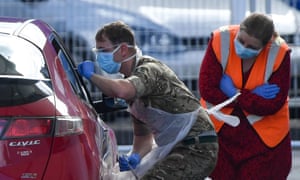Sam Jones in The FT
Four members of the multi-billionaire Hinduja clan, the UK’s wealthiest family, have been convicted of exploiting their domestic staff and sentenced to lengthy jail terms by a court in Geneva.
In a ruling on Friday, a panel of three judges found Prakash Hinduja, his wife Kamal, as well as their son Ajay and his wife, Namrata, guilty of serious employment offences related to Indian staff.
“They spent more on [their] dog than one of their servants,” Genevan public prosecutor Yves Bertossa told the court this week in a case that shed a harsh light on the punishing conditions to which one of the world’s wealthiest families subjected their workers.
The court cleared the four Hindujas of the more serious charge of human trafficking that had been brought by the authorities.
The domestic staff at the centre of the case, who were mostly illiterate, had been flown in directly from India to work at the family’s palatial home in Switzerland.
In a damning verdict, presiding judge Sabina Mascotto said the Hindujas had no excuses for their behaviour.
“[The workers] were exploited given their situation in India was so precarious and they were exploited as they didn’t know the language, had their passports confiscated and were only ever paid every 3-6 months,” said Mascotto.
“The four Hindujas knew the vulnerabilities of the staff and knew what the rules were in Switzerland, as they all were Swiss citizens and Ajay was educated in Switzerland,” she added.
The court nevertheless ruled that the employees had known the terms they were signing up for when they entered the family’s service in India and therefore could not have been said to be trafficked.
Reflecting the seriousness of the offences the four were convicted of, Prakash and Kamal were sentenced to four-and-a-half years in prison. Ajay and Namrata received a four-year sentence.
An appeal process could take years in Switzerland’s often slow-moving justice system, under which a judgment is not considered final until all avenues of appeal have been exhausted. The four Hinduja family members were not present at the court for the verdict.
Romain Jordan, a lawyer for the family, said his clients were “appalled and disappointed” by the court’s decision.
“Importantly, the family has been acquitted of human trafficking charges,” he said.
An appeal has already been filed. “Under Swiss law, the presumption of innocence is paramount until an adverse final judgment by the highest adjudicating authority is enforced,” Jordan emphasised.
Prakash is the second of three brothers behind the Hinduja Group, a sprawling multinational conglomerate with interests in everything from cars and petrochemicals to banking and armaments.
His older brothers Gopichand and Srichand settled in London in the 1980s and made it the centre of the group’s affairs. Gopichand, worth an estimated £35bn, is the UK’s richest man. Srichand died last May.
Prakash settled in Switzerland, from where he runs the family business. He was made a Swiss citizen in 2000. His younger brother, Ashok, runs the Hinduja Group’s Indian interests.
In a week of explosive revelations, Geneva’s public prosecutor accused Prakash, Kamal, Ajay and Namrata of treating their employees as indentured servants.
They were accused of keeping the staff trapped at a villa in the ultra-exclusive Geneva lakeside suburb of Cologny, where they slept in substandard conditions in basement rooms.
The workers were paid less than one-tenth of the salary they were entitled to under Swiss law, according to the prosecutor Bertossa.
One servant was paid just 7 Swiss francs a day, and worked as many as 18 hours, 7 days a week, Bertossa alleged. The family dog had more than three times as much spent on it, according to documents seized by police and presented to the court.
As well as attending to the family at Cologny, the retinue of staff travelled with the Hindujas to their ski chalet in the Swiss alps and villa on the Cote d’Azur, but otherwise had almost no personal freedom, Bertossa said.
Their passports were taken from them. They were paid in rupees into Indian bank accounts, which they did not have access to while in Switzerland, he said.
Giving testimony, members of the family denied the allegations against them, and said their staff had been like “members of the family.”
Ajay’s lawyer, Yael Hayat, told the court that the prosecutor’s claims about employees were exaggerated. “When they sit down to watch a movie with the kids, can that be considered work?” she asked the court to consider.
A civil case brought against the family on behalf of their staff was settled for an undisclosed sum last week.
